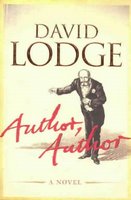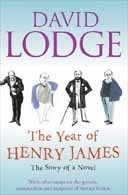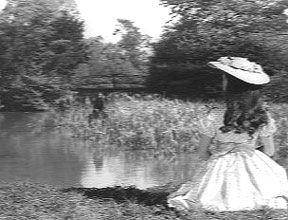Ho hum. I'm not a very good litblogger because I suffer from Literary Award fatigue. There are just so many longlists, shortlists, winners, that one can blog about ... but that's a shameful admission because these lists serve as useful reading guides for anyone who wants to be a bit more adventurous in their reading and get out of the sticking-with-familiar-writers-rut.
But if there seem to be more such lists around than there used to be - there probably are. Apparently even the Booker committee hadn't used to announce it's longlist (and now that they do I feel oliged to buy and read the whole bloody lot and severe bookguilt if I miss any out). It's probably true for the other awards as well. And of course, there are more awards these days.
Anyway. The shortlist for the Dublin-based 2006 IMPAC prize
was announced a few days ago. It's a very interesting literary prize since it is open to authors of any nationality and written in any language, provided they have been published in English translation, and thus casts its net a lot more widely than other literary awards. The longlist is actually
nominated by libraries across the world, and you may remember that
I picked up a controversy about the librarians in some countries (inc. Malaysia) nominating a title by a national writer rather than for the best book of the year.
Thankfully librarians from elsewhere seem to have been clearer on the concept and less
kiasu: the original longlist of 132 books has now been whittled down to a shortlist of just 10 titles. And the nominations are:
 Graceland by Chris Abani
Graceland by Chris Abani- Maps for Lost Lovers by Nadeem Aslam
- Havoc, In Its Third Year by Ronan Bennett
- The Closed Circle by Jonathan Coe
- An Altered Light by Jens Christian Grondahl - translated from the Danish by Anne Born
- The Swallows of Kabul by Yasmina Khadra - translated from the French by John Cullen
- Breaking the Tongue by Vyvyane Loh
- Don't Move by Margaret Mazzantini - translated from the Italian by John Cullen
- The Master by Colm Tóibín
- The Logogryph by Thomas Wharton
The Master by Colm Toibin was nominated by no less than
17 libraries across the world, so I'd put my money on that horse if I were a betting person.
The winner will be announced on July 14 2006.
While I'm on the subject of shortlists and the best of world literature, let me apologise for not linking to
this piece on the Independent Foreign Fiction Prize shortlist which was announced back in March. This prize is entirely for works in translation - and that's all to the good since we often just don't hear about the best books from the rest of the world.
This award will be presented on the 2nd May.
Enough awards for one day, though I can think of several others I should have blogged about. With any luck you won't even notice which they are ...
 The Costa Book Awards have been announced.
The Costa Book Awards have been announced.





